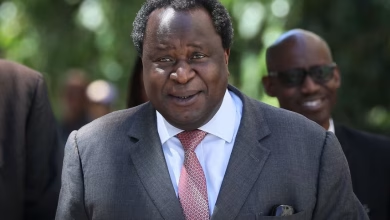The World Health Organization (WHO) has highlighted the urgent need for Ghana and other African nations to adopt comprehensive policies aimed at cutting road accident-related deaths and injuries by 50% by 2030.
This target aligns with SDG 3.6, which seeks to halve global road traffic fatalities and injuries by the end of the decade.
According to the WHO, effective measures should include the promotion of sustainable transportation systems, enhancement of legislative frameworks for road safety, investment in data management, improvement in post-crash responses, and research addressing Africa’s specific challenges.
The WHO’s 2023 road safety status report, released in Nairobi, Kenya, underscores Africa’s critical situation, revealing that the continent has become a hotspot for road crash fatalities, placing immense pressure on public health systems and jeopardizing the achievement of SDG 3.6.
The report shows that while Africa represents 15% of the global population and only 3% of the world’s vehicles, it is responsible for 20% of all road crash deaths. The continent witnessed a 17% increase in road traffic deaths from 2010 to 2021, in stark contrast to a 5% decrease globally.
The majority of fatalities involve males aged 15 to 64, with vulnerable road users such as motorcyclists, cyclists, and pedestrians suffering the most. The increase in road crash deaths is attributed to several factors, including weak enforcement of traffic laws, poor road conditions, speeding, drunk driving, and limited road safety education.
The report also criticizes the lack of stringent road safety laws across Africa, noting that no country in the region currently meets best practice standards for managing key road safety risks like speeding and drunk driving. Additionally, the lack of investment in alternative transport modes such as cycling and walking exacerbates the problem, with only 13% of countries having national strategies to promote these safer, more sustainable options.
Moreover, post-crash care services are inadequate in many countries, with fewer than one-third offering recommended levels of pre-hospital and emergency care.
Dr. Matshidiso Moeti, WHO Regional Director for Africa, called the situation a serious public health crisis, emphasizing the need for coordinated efforts to make roads safer. WHO representative in Kenya, Abdourahmane Diallo, also stressed the importance of overhauling transport infrastructure, retraining drivers, and enhancing safety education to mitigate the high road accident burden in Africa.
